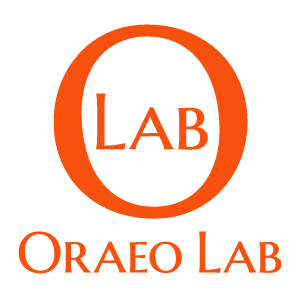
The Ultimate Protein Guide for Cancer Patients
Share
“Protein isn't just a nutrient—it’s a core part of your treatment.”
Hi, I’m Ollie from ORAEOLAB 👋
Today, I’ll walk you through why protein is so important for cancer patients and how to get enough of it in the right way.
Protein Guide for Cancer Patients
❗ “I’ve lost weight.”
👉 This is where the problem begins.
During chemotherapy or radiation therapy, many patients experience loss of appetite, nausea, mouth sores, or diarrhea.
As a result, eating becomes difficult—and the weight starts dropping.
But here’s the real issue:
👉 It’s not just fat loss. It’s muscle loss—and that’s dangerous.
📉 The Vicious Cycle of Fatigue
✅ Loss of muscle = loss of strength
✅ You feel tired even after a little movement
✅ Less activity = lower appetite
✅ Less eating = more weakness
👉 This vicious cycle must be stopped early.
And the key is protein.
💪 Why Protein Matters
| Key Role | Description |
|---|---|
| ✅ Maintains Muscle | Helps preserve strength and physical function |
| ✅ Boosts Immunity | Essential for white blood cells, antibodies, and immune repair |
| ✅ Supports Healing | Helps rebuild tissue and fight infection |
| ✅ Reduces Treatment Resistance | Improves tolerance to chemo/radiation and recovery |

📌 How Much Protein Do You Need?
* Healthy adults: 0.8g/kg of body weight per day
* Cancer patients: 1.2–1.5g/kg or more
👉 Example: For a 55kg patient → at least 70–80g/day
🍽️ Best Sources of Protein
1️⃣ Animal-Based Proteins

(High absorption, effective for muscle maintenance)
| Food | Protein per 100g | Absorption | Notes |
|---|---|---|---|
| Chicken Breast | 23g | 80–90% | Lean and easy to cook |
| Eggs | 13g (6g per egg) | 90–95% | Versatile and gentle on the stomach |
| Salmon | 20g | 80–90% | Rich in Omega-3, easy to digest |
| Beef | 20–22g | 80–90% | Best used finely chopped or boiled |
2️⃣ Plant-Based Proteins

(Lower absorption but easier on digestion and sustainable)
| Food | Protein per 100g | Absorption | Notes |
|---|---|---|---|
| Soybeans | 36g | 65–75% | Complete protein; cook before eating |
| Tofu | 8g | 65–75% | Soft and digestible |
| Black Beans | 9g | 60–70% | Use in soups, salads, or rice |
| Peanuts | 25–30g | 50–60% | High-protein but calorie-dense |
| Brown Rice + Oats | ~2.5–3g per serving | 50–60% | Great as whole grain base for meals |
😵 On Days When Eating Is Hard
✅ Prepare in Advance
* Boiled eggs, pre-sliced chicken breast, or single-serve protein drinks
* Keep grab-and-go snacks in the fridge or bag
✅ Add Protein to Meals
* Add soft tofu or minced meat to soups and stews
* Use mixed grain rice (brown rice + oats + beans) instead of white rice
* Add yogurt or nut butter to smoothies or oatmeal
✅ If You Feel Nauseous
* Sip diluted soy milk or smoothies
* Eat small portions of high-protein foods throughout the day
* Blend oatmeal with plant milk for a soft, easy-to-digest porridge
🎯 Final Thoughts
✔️ The earlier you start protein intake, the better your body handles treatment.
✔️ Muscle mass supports strength, eating ability, movement, and even mental health.
✔️ Focus on protein-rich foods that are easy to eat, digest, and enjoy.
📌 Bonus Tip!
Try OraeoLab’s Soy Shake, made from 100% Korean-grown soybeans and peanuts.
It’s a clean, natural source of plant-based protein—ideal for anyone looking for a gentle, nutritious supplement during recovery. 💛
I'll be back next time with: Light Meal Ideas for Cancer Patients on Days with No Appetite — stay tuned! 🌿
